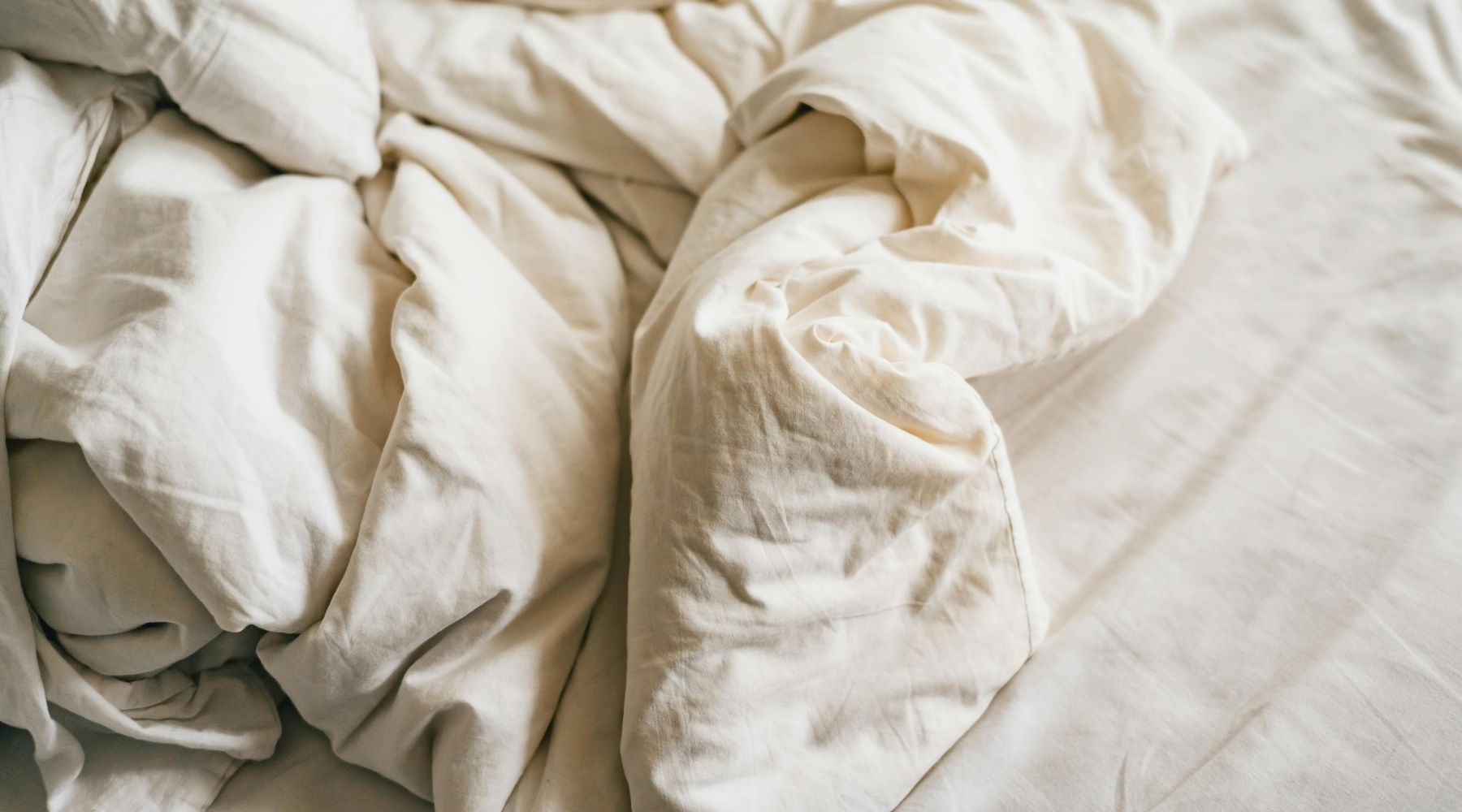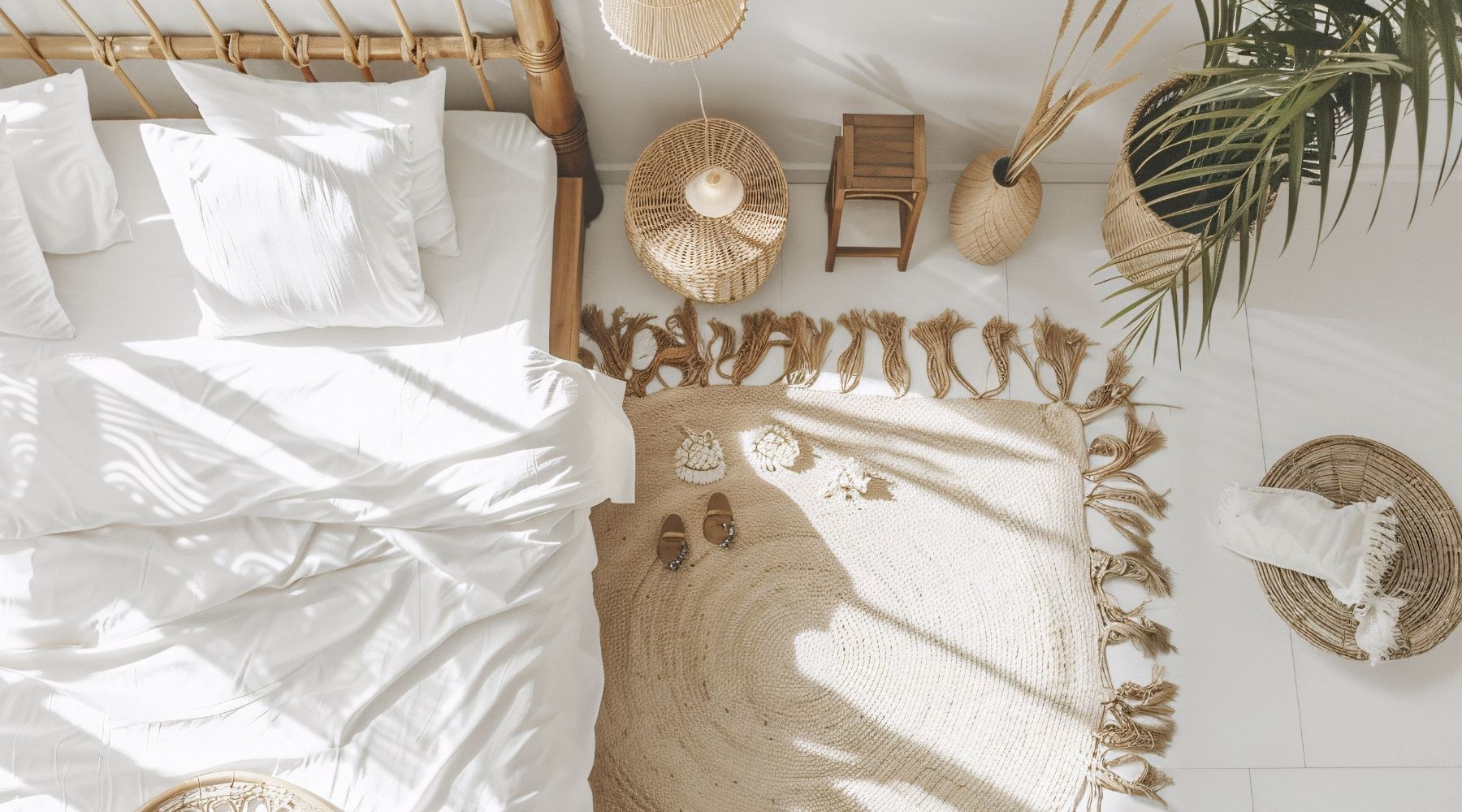When was the last time you changed your sheets - and no, we don’t mean washed them?
We spend roughly a third of our lives in bed, which makes your sheets one of the most-used fabrics in your home. Over time, even the highest-quality bedding can lose its softness, colour, and freshness - and knowing when to replace it can make all the difference to your comfort and sleep quality.
At Ethical Bedding, we design sustainable, luxury eucalyptus sheets that last longer and feel softer night after night. But even with the best materials, every set has a natural lifespan. In this guide, we’ll cover how often you should replace your bed sheets, what signs to look for, and simple care tips to make them last for years.
Why Replacing Your Sheets Matters
Fresh, high-quality bedding is more than a luxury - it’s essential for healthy, restful sleep.
Hygiene plays a big part. Each night, we shed skin cells, sweat, and natural oils, all of which gradually accumulate in our sheets. Over time, this buildup can attract dust mites and bacteria, especially in humid environments. Washing helps, but older fabrics eventually lose their ability to stay truly clean and fresh.
There’s also comfort and breathability to consider. As fibres age, they break down and become rougher to the touch, trapping more heat and moisture. You might find yourself tossing and turning at night without realising your bedding is to blame.
Lastly, there’s the sustainability factor. Lower-quality, synthetic bedding often wears out quickly, meaning it needs replacing more often - leading to more textile waste. Choosing natural, responsibly made sheets that are built to last, like our eucalyptus silk bedding, reduces your environmental impact and keeps your sleep sanctuary looking and feeling its best.
How Often Should You Replace Bed Sheets?
The average recommendation is to replace your bed sheets every 2–3 years. But the actual lifespan depends heavily on quality, care, and how often you use them.
Here’s a simple breakdown:
-
High-quality natural sheets (like eucalyptus): 3–5 years
-
Standard cotton sheets: 2–3 years
-
Synthetic blends (polyester, microfiber): 1–2 years
What affects sheet lifespan?
-
Material quality: Durable fibres like eucalyptus are stronger and smoother than cotton or polyester, helping them maintain their softness and structure longer.
-
Washing frequency: Washing weekly or too aggressively can wear out weaker fabrics, while gentle washing extends the life of premium sheets.
-
Climate: High humidity or heat can stress fibres and encourage bacteria growth.
-
Usage: Spare guest beds or seasonal sets naturally last longer than your everyday bedding.
Ethical Bedding’s eucalyptus silk sheets are designed to last through years of comfortable sleep. The silky fabric resists pilling and fading, remains naturally breathable, and maintains its smoothness wash after wash - meaning you’ll replace them far less often than conventional bedding.
Signs It’s Time to Replace Your Sheets
Even with regular care, your sheets will eventually show signs of wear. Here’s how to tell when it’s time to upgrade:
-
Fabric thinning or pilling: If your once-smooth sheets now feel rough or have visible pilling, the fibres are breaking down.
-
Persistent odours: Even after washing, odours can linger as older fabrics trap moisture and bacteria.
-
Loss of softness or sheen: Natural fabrics lose their smooth finish over time; if your bedding feels coarse, it’s likely past its prime.
-
Elastic losing shape: Fitted sheets that no longer stay snug are a sign of overstretched fibres.
-
Discolouration or fading: Yellowing, staining, or uneven colour indicates that the fabric’s integrity has weakened.
-
Increased sneezing or irritation: Older sheets can harbour dust, mould, or mites - especially if they’re not naturally hypoallergenic like eucalyptus fibre.
If your bedding shows any of these signs, it’s worth considering an upgrade - particularly if it’s been over three years since your last refresh.
How to Extend the Life of Your Sheets
You don’t have to replace your bedding too soon. With the right care, you can keep your sheets softer and fresher for far longer - saving money and reducing waste.

Here’s how:
1. Wash mindfully
-
Wash your sheets every one to two weeks to keep them clean without over-washing.
-
Use mild, eco-friendly detergent to preserve fibre integrity.
-
Avoid bleach and fabric softeners, which weaken natural fibres.
2. Choose the right temperature
-
Wash in cool or warm water instead of hot. Heat accelerates fibre breakdown and causes shrinkage.
-
Ethical Bedding’s eucalyptus sheets perform best at 30-40°C.
3. Dry gently
-
Line dry whenever possible, ideally in the shade to avoid UV damage.
-
If you use a dryer, choose a low-heat, delicate setting.
4. Rotate between sets
-
Owning two or three sets of sheets and rotating them reduces wear and gives fibres time to recover.
5. Store properly
-
Store clean sheets in a cool, dry place, folded neatly to prevent creasing and mustiness.
Because our eucalyptus silk bedding is naturally resistant to dust, mites, and mould, it’s easier to keep clean and fresh - helping you enjoy hygienic, breathable sleep for longer.
Choosing Durable, Sustainable Sheets
If you’re investing in new bedding, it pays to choose fabrics that combine durability with sustainability.
Eucalyptus Silk Sheets
Ethical Bedding’s eucalyptus silk sheets are woven from 100% TENCEL™ eucalyptus fibre - a renewable resource grown using 95% less water than cotton, with no pesticides or harmful chemicals.
-
Naturally hypoallergenic and antibacterial
-
Moisture-wicking and breathable, perfect for hot or humid climates
-
Resistant to pilling, meaning they stay silky-smooth over time
-
Machine washable for easy care
Compared to traditional cotton or synthetic options, eucalyptus fibre maintains its structure for years, without thinning or fading. That means you can replace your sheets less frequently - good news for your wallet and the planet.
Conclusion
So, how often should you replace your bed sheets?
As a general rule:
-
Every 2–3 years for most fabrics
-
Every 3–5 years for premium, sustainably made eucalyptus sheets
By choosing high-quality materials and caring for them properly, you’ll enjoy luxurious comfort for longer while reducing waste.
If your sheets are starting to lose their softness, colour, or fit, it might be time to treat yourself - and your sleep - to something better.
Discover our eucalyptus bedding collection to experience a cleaner, softer, more sustainable night’s sleep that’s made to last.








Share:
Menopause Sleep Tips: How to Improve Sleep and Restore Nightly Rest
Can Bedding Improve Sleep Quality? The Science Behind Eucalyptus Sheets Explained